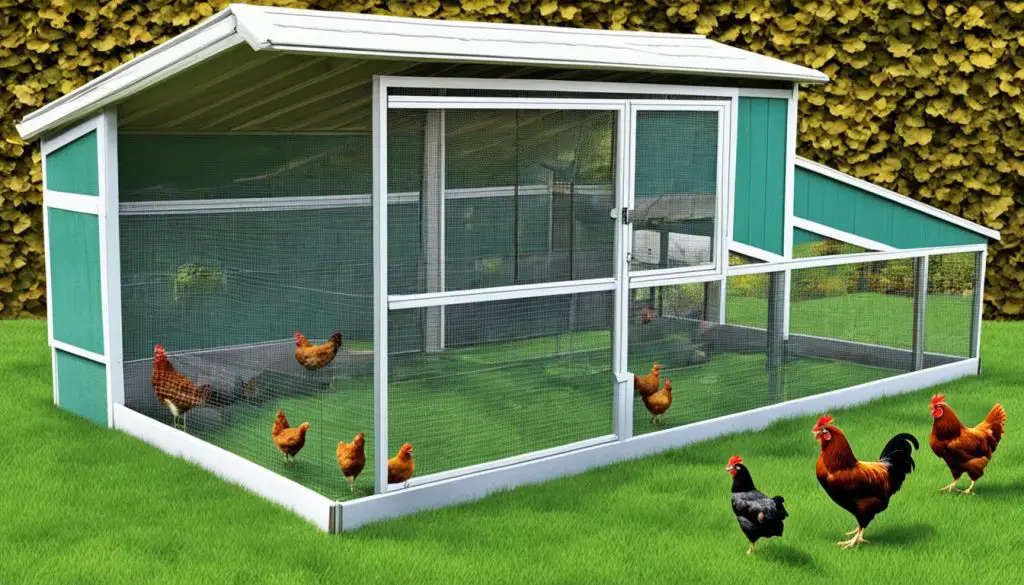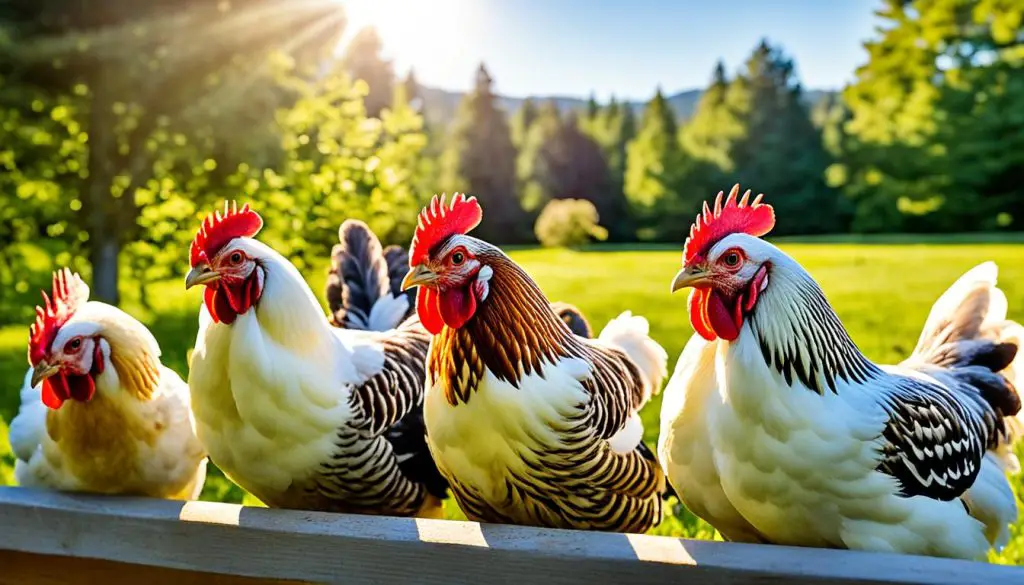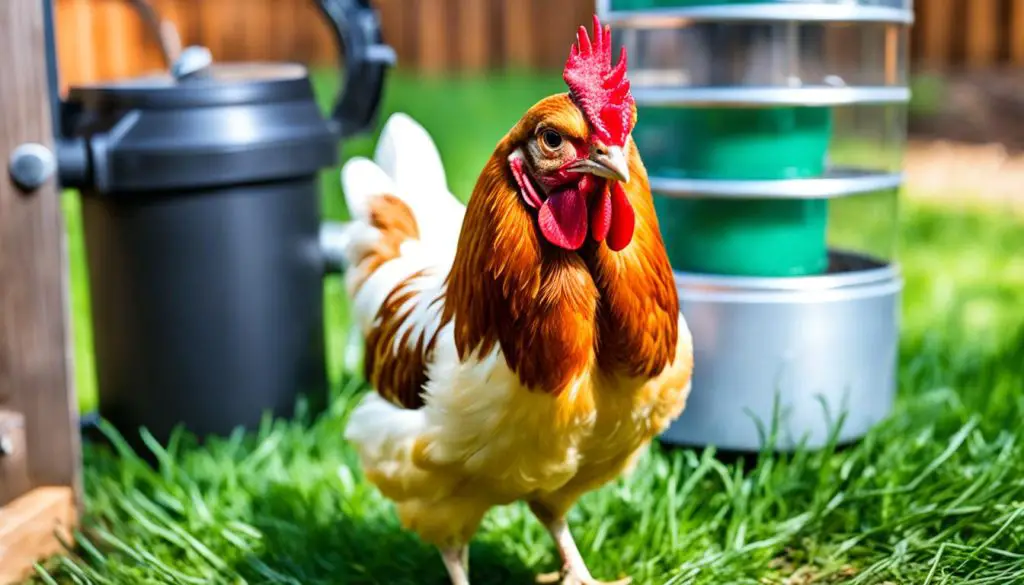Have you ever wondered how you can achieve greater sustainable livingbackyard chickens is not only a step towards homesteading lifestyle and food freedom but also a delightful way to connect with nature.
Starting your chicken flock can seem daunting, but it becomes much easier with the right knowledge on egg production and care. From researching your climate and choosing appropriate breeds to understanding the essentials of shelter, nutrition, and health, this guide will walk you through every step. Discover how to avoid common pitfalls, like sourcing chicks from unreliable sources, and learn about the benefits of biosecurity and quarantine practices.
Key Takeaways
- Embarking on a homesteading lifestyle begins with raising backyard chickens.
- Achieve food freedom and reduce grocery store reliance by producing your own eggs.
- Understand the importance of climate research and breed suitability.
- Learn about biosecurity and the necessity of quarantining new birds.
- Essential chicken care includes proper shelter, nutrition, and protection.
- Consider free-ranging versus using a chicken run, based on your property size.
Getting Started with Chickens
Before diving into Raising Chicks, it’s crucial to familiarize yourself with local ordinances related to backyard chickens and ensure your setup complies with regulations. Key elements of Chicken Housing include a henhouse or chicken coop equipped with feeders, water containers, roosting areas, and nesting boxes. For effective Chicken Care, each hen typically needs around 3-4 square feet inside the coop and 8-10 square feet of outdoor space.
Financially, starting a chicken flock may require an initial investment ranging from $500 to $700, which varies based on the coop size and number of chickens. According to seasoned poultry keeper Chris Lesley, who has over two decades of experience, hens are most productive in their first two years and need 12 to 14 hours of daylight for optimal egg-laying.
Moreover, raising chickens offers additional benefits to your garden by effectively controlling pests and providing compostable material. Ensuring your flock’s well-being is a continuous process that involves diligent attention to their Chicken Care needs.
- Verify local restrictions and requirements for Chicken Housing.
- Ensure an adequate and spacious setup for Raising Chicks.
- Plan for an initial spending budget of $500-$700.
- Maintain the productivity of hens with sufficient daylight and proper care.
- Utilize chickens for pest control and compost contribution to your garden.
Choosing the Right Chicken Breed
When starting with backyard chickens, selecting the right chicken breeds is crucial to ensure they thrive in your local climate and meet your needs. Different breeds bring unique advantages to the table, supporting a sustainable living approach.
Considerations for Climate
Climate plays a significant role in deciding which chicken breeds will be successful in your backyard. Cold-hardy breeds are necessary for regions with harsh winters, while heat-tolerant breeds are ideal for warmer areas. Always consider the breed’s adaptability to local weather conditions to ensure their health and productivity.

Popular Breeds for Beginners
For those new to raising backyard chickens, some breeds are particularly favored due to their resilience and temperament. Here are a few ideal choices:
| Breed | Climate Suitability | Unique Traits |
|---|---|---|
| Rhode Island Red | All Climates | Hardy, excellent layers, friendly |
| Plymouth Rock | Moderate to Cold Climates | Docile, good dual-purpose breed |
| Sussex | All Climates | Curious, great foragers, reliable layers |
By understanding the specific needs and strengths of these chicken breeds, you can create a flock that is not only productive but also enhances your efforts toward sustainable living.
Building or Buying a Chicken Coop
One of the crucial decisions when starting your journey in the homesteading lifestyle is whether to build or buy a chicken coop. This choice may greatly influence the well-being of your flock.
Essential Features of a Coop
When evaluating chicken coops, certain features are indispensable. Adequate space is vital, ensuring each chicken has enough room to move comfortably. Ventilation is equally important, helping maintain air quality and preventing respiratory issues. Nesting boxes and roosting spaces are essential to cater to the natural behaviors of chickens.
Security measures like predator-proofing, along with ease of cleaning designs, also play a significant role. Well-built coops simplify maintenance, allowing for better hygiene and bird health.
DIY vs. Pre-made Coops
Deciding between a DIY chicken coop and a pre-made structure depends on your budget, skills, and specific needs of your flock. DIY projects, such as converting a shed, offer customization and cost-effectiveness, appealing to those who enjoy hands-on tasks.
Pre-made coops, although potentially more costly, save time and provide professionally designed options that cater to various requirements. Prioritize models that offer mobility for foraging or sufficient insulation for colder climates.
Regardless of the choice, integrating functional elements into your coop design is essential for fostering a thriving homesteading lifestyle.
Feeding Your Chickens Properly
Ensuring proper chicken feeding is crucial to maintaining the health and productivity of your flock. Understanding the nutritional needs of your chickens can significantly impact their overall well-being and egg production. Here’s how to meet those needs effectively.
Nutritional Needs
Chickens have specific nutritional needs that vary based on their age, breed, and production demands. A balanced diet often consists of 12-20% protein. Providing a mix of non-GMO layer feed, kitchen scraps, bugs, and grass can ensure they receive a variety of nutrients. Be mindful of the differences in dietary requirements for free-ranging chickens versus those confined to a coop.

Additionally, it’s important to ensure that clean water is always available to your flock. This not only aids in digestion but also supports their health and egg-laying capabilities. When selecting feeders, choose designs that minimize waste and prevent contamination.
Supplementing with Grit and Calcium
Grit is an indispensable part of chicken care, especially for those confined to a coop or run. It aids in digestion by grinding down food. For laying hens, a good source of calcium is vital for producing strong eggshells and maintaining bone health. This can be supplemented through crushed eggshells or oyster shells.
By attending to these specific nutritional needs and providing proper chicken feeding practices, you can ensure a happy, healthy flock that thrives in its environment.
Daily Care and Maintenance
Ensuring the well-being of your backyard chickens requires consistent daily care and attention. Proper chicken care encompasses feeding, watering, and maintaining a clean environment to promote egg production and keep your flock healthy.
Feeding and Watering
A critical component of chicken care involves regular feeding and ensuring access to fresh water. Both laying hens and young chicks require a balanced diet to support growth and egg production. A typical diet should include 12-20% protein, and additional supplements like crushed eggshells or oyster shells can provide the necessary calcium for strong eggshells.
Monitoring the amount of leftover feed helps in adjusting portion sizes, minimizing waste and ensuring all chickens receive adequate nutrition. Water is essential for maintaining optimal egg production. Regular checking of water containers is necessary to prevent freezing in cold weather or overheating during summer months.
Cleaning the Coop
Coop cleanliness is another essential aspect of chicken care. Regular cleaning schedules should be followed to manage bedding, remove manure, and maintain overall hygiene of the coop. A clean living space not only prevents diseases but also reduces odors and promotes a healthy environment for egg production.
Here’s a handy guide for routine coop cleaning:
| Cleaning Task | Frequency |
|---|---|
| Removing old bedding | Weekly |
| Replacing with fresh bedding | Weekly |
| Disinfecting water containers | Weekly |
| Checking for pests | Bi-weekly |
| Deep cleaning of the coop | Monthly |
By adhering to these coop maintenance routines, you’ll ensure your backyard chickens remain healthy and productive, leading to consistent egg production and a thriving flock.
Ensuring Chicken Health
Maintaining the health of your backyard chickens is an essential aspect of the homesteading lifestyle. Knowledge of common illnesses and preventive measures can make a significant difference in chicken health. Proper care, nutrition, and awareness can prevent many health issues.
Common Illnesses and Prevention
Understanding common ailments and their preventive measures is vital. Regular vaccinations, good husbandry practices, and appropriate nutrition form the foundation of a healthy flock. Routine health checks can aid in the early detection and treatment of diseases.
“An ounce of prevention is worth a pound of cure,” true in maintaining backyard chicken health. Regular checks for signs like lethargy, irregular feathering, or unusual droppings can prevent significant health issues.
- Marek’s Disease
- Newcastle Disease
- Avian Influenza
- Coccidiosis
Finding a Veterinarian
Establishing a relationship with a veterinarian skilled in poultry health is crucial. They can help manage diseases and offer advice in emergency situations. Cultivating this relationship ensures access to resources and knowledge tailored to the specific needs of your flock. Additionally, coop hygiene and biosecurity measures, such as quarantining new arrivals, play a vital role in preventing the spread of illnesses.

| Preventive Measure | Description | Benefit |
|---|---|---|
| Regular Vaccinations | Protects chickens from common diseases | Reduces disease outbreaks |
| Good Nutrition | Ensures chickens receive necessary nutrients | Promotes overall health |
| Routine Health Checks | Identifies early signs of illness | Allows prompt treatment |
| Quarantine for New Arrivals | Prevents the spread of diseases | Maintains flock health |
Conclusion
As we wrap up this guide on raising chickens for beginners, it becomes evident that embarking on this journey requires a well-rounded approach. From selecting the right breeds suited to your climate to building or buying a functional chicken coop, each decision plays a pivotal role in the thriving health of your backyard chickens. By understanding their dietary needs and establishing a routine of daily care, you set the foundation for a flourishing flock.
Attention to health cannot be overstated. Regular monitoring and proactive measures against common illnesses ensure your chickens lead long, productive lives. This includes incorporating biosecurity practices to safeguard against diseases. Additionally, developing a relationship with a vet knowledgeable about poultry can be invaluable.
Finally, beginner chicken farmers can take immense pride in achieving food freedom and contributing to sustainable living. With fresh eggs at your disposal and a well-managed backyard ecosystem, the rewards of this homesteading lifestyle are plentiful. Empowered with the right tools and knowledge, you’ll find joy and fulfillment in caring for your backyard chickens.
FAQ
What are the benefits of raising backyard chickens?
Raising backyard chickens serves as an entry point into the homesteading lifestyle, providing food freedom by reducing reliance on grocery stores. It can also serve as a supplemental income source through the sale of eggs or hatched chicks.
Where should I source my chicks?
It’s important to source chicks from reputable entities to prevent the spread of diseases. Biosecurity practices, such as quarantining new birds, are crucial to avoid illnesses like respiratory viruses.
What basic care do chickens require?
Basic chicken care includes providing a sheltered coop, protection from predators, roosts, nesting boxes, clean water, and proper nutrition. Depending on your property size, you can choose between free-ranging and using a chicken run.
How do I choose the right chicken breed?
Select breeds that are well-suited to your local climate. Popular breeds for beginners include Rhode Island Red, Plymouth Rock, and Sussex. Always check with local hatcheries or reputable sources for disease-free birds.
What are the essential features of a chicken coop?
A chicken coop must include sufficient space, ventilation, predator-proofing, nesting boxes, roosting space, and should be easy to clean. Consider building a mobile coop for foraging or ensuring proper insulation for colder climates.
What is the dietary requirement for chickens?
Chickens need a diet consisting of 12-20% protein. Their feed may include non-GMO layer feed, kitchen scraps, bugs, and grass. Supplement their diet with grit for digestion and calcium (via crushed eggshells or oyster shells) for strong eggshells.
How do I maintain my chicken coop?
Regularly clean the coop to manage bedding, manure, and overall hygiene, which helps prevent diseases. Observation of leftover feed can guide portion size adjustments. Ensure watering systems are functional and provide fresh water continuously.
What are common chicken illnesses, and how can I prevent them?
Common illnesses include respiratory infections and parasitic diseases. Prevention involves good husbandry practices, proper nutrition, vaccination, and regular health checks. Establishing contact with a poultry veterinarian is beneficial for disease management.
How can maintaining backyard chickens contribute to garden health?
Chickens help control pests and provide valuable compostable material for gardens, thereby promoting a healthy, sustainable living environment.
Leave a Reply